The next two months in Tunisia will be critical for determining whether President Kais Saied consolidates power, or yields to a renewed democracy. On July 25, 2022, on the one-year anniversary of Saied’s presidential coup, Tunisia will hold a referendum on a still-to-be-drafted new constitution that Saied is hailing will inaugurate a “new republic.” If that constitution enshrines the near-absolute powers Saied has enjoyed over the past year, Tunisian democracy as we know it will be over. Avoiding that fate will require not just ramping up domestic and international pressure on Saied, but also providing him an off-ramp.
Saied’s current roadmap will see him draft the new constitution near unilaterally. Excluding all political parties and most civil society organizations, he has invited just a handful of law professors and unions to serve on two purely advisory councils, and even most of them have refused. Nonetheless, Saied is pressing forward, promising the draft of the new constitution on June 30. Such an approach is certain to create a constitution tailor-made for Saied, one that empowers the presidency with few checks and balances. One of his justifications for seizing power, after all, was his complaint that the 2014 constitution had too many “locks” on the president’s power.
The end of the honeymoon
Thus far, Kais Saied had been able to rely on his popularity to ram through his unilateral decrees — but it is less clear whether he will be able to do the same with the constitution. Saied’s honeymoon period is ending. The masses, fed up with economic hardship and corruption, do not view a new constitution as a priority. Not surprisingly, Saied struggled to mobilize even 6% of the population into participating in his online consultation over the constitution this spring. That bodes ill for his ability to mobilize large numbers to actually vote yes on July 25, especially since he still has no formal political party or movement.
Meanwhile, every organized force is gradually turning against him. Even forces that adopted a neutral or cautiously positive tone last July, such as the Nobel Peace Prize-winning Tunisian General Labor Union, are now more forcefully rejecting his roadmap. Every major political party and most civil society organizations have as well. If all of these forces unite in voting no, they could pose a serious threat of blocking his new constitution.
The opposition, of course, has had its challenges in unifying. The secular-Islamist divide runs deep, and none of the secular parties want to be publicly seen as working with Ennahda, the largest party in the now-dissolved parliament. For them, “Ennahda is radioactive,” as one secular leader told me. Still, uniting around voting no is much easier than uniting around an alternative vision.
Some political parties have indicated that they might boycott the referendum instead, to undermine its legitimacy. This would be a strategic mistake. Nothing about the past year indicates that Saied is remotely interested in the legitimacy of his roadmap, just in creating a new system that enshrines his rule. Threatening to vote no would provide the opposition much more leverage than boycotting.
If a credible threat materializes that his constitution might fail, Saied’s true colors will in turn be revealed. He may come to the table, recognizing that he needs to secure the support of at least some political parties in order to pass his constitution. But alternatively, if he is truly a dictator, he might resort to repression and rigging in order to pass his constitution. And thus the question becomes: how to avoid that fate, and incentivize Saied down the path of compromise?
The need for an off-ramp
Here, Saied needs an off-ramp, one that attracts him toward compromise, rather than repression. What the last 10 months reveal is that the one thing Saied cares about most is his legacy: He wants to be the one to create a new political system. He wants to be hailed in 50 years like Habib Bourguiba is today for having created a new republic. The key is letting him have it.
At the same time that the opposition threatens to vote no on a unilaterally-drafted constitution, they must also signal to Saied that they would vote yes if their voices are heard in the revision. That will require a bit of humility on their part: They must acknowledge that while the 2014 constitution they created was quite good, it did have its flaws. They must be willing to join with Saied and work together to improve it. They must recognize that the divided, semi-presidential system did not work, and shift instead to a parliamentary or, if necessary, presidential one. Either way, they must ensure sufficient checks and balances. They should remove the state of emergency clause, for instance, that led to this power grab in the first place, and empower and enshrine the independence of the judiciary, electoral commission, and anti-corruption commission, among other constitutional bodies.
That way, all sides can still come out of this crisis with a win. Saied can say he created a new republic, and a legacy for himself for when he leaves office. Meanwhile, the political parties will have saved Tunisia’s democracy, and perhaps even revitalized and improved it.
The role of international pressure
Still, even if the opposition provides such an off-ramp, there is no guarantee Saied takes it. He might instead slam the gas pedal of repression. This is where the international community can play an important supporting role. The United States and its European partners must signal that any repression or rigging of the referendum will be met with an immediate aid cut and suspension of talks with the International Monetary Fund. The costs need to be prohibitively severe, such that Saied’s only option is the off-ramp of compromise.
Critics might respond that it is better to let Kais Saied pass his new constitution, either so that his project can be tried and failed and thus delegitimized, or so that the country can move on to its more important economic challenges. But this approach is risky: If Saied consolidates his rule through a new constitution that provides no real checks on his power, the options for reining him in down the road narrow considerably. The best option today is for all sides to come to the table and consensually draft a new constitution that gets the country back on its democratic path.
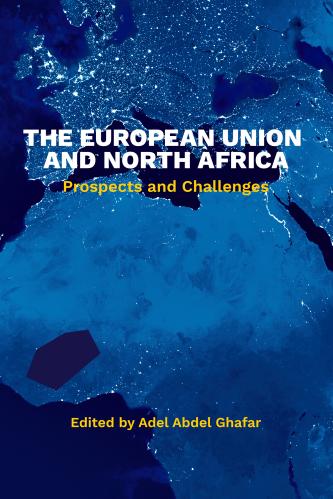
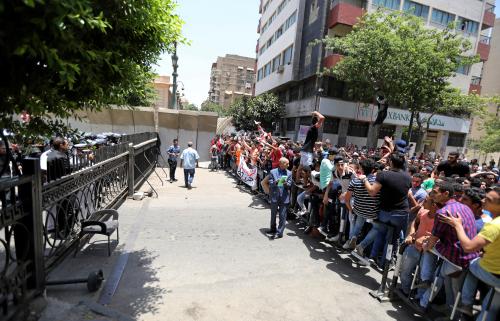
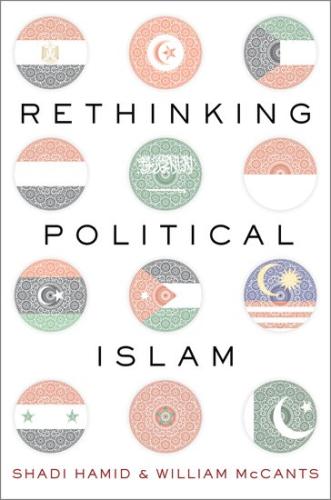
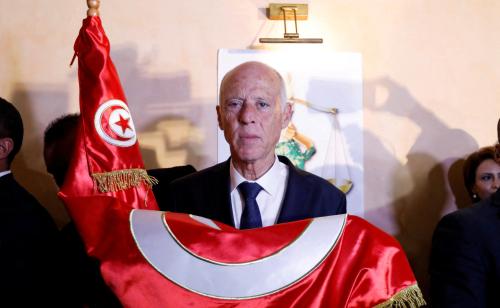
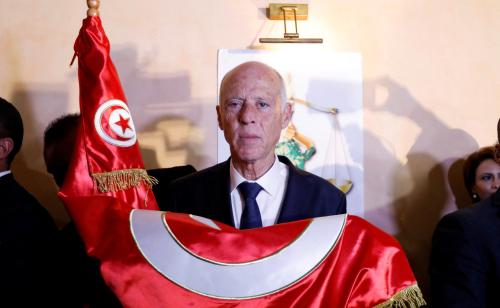
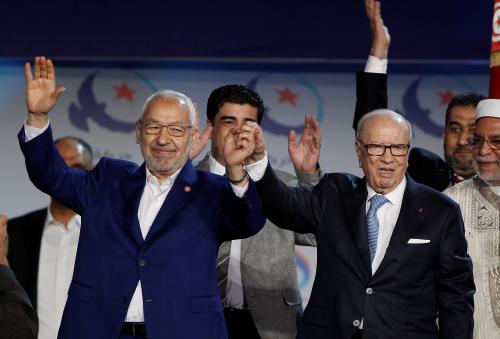
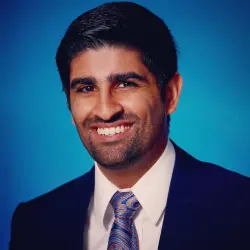
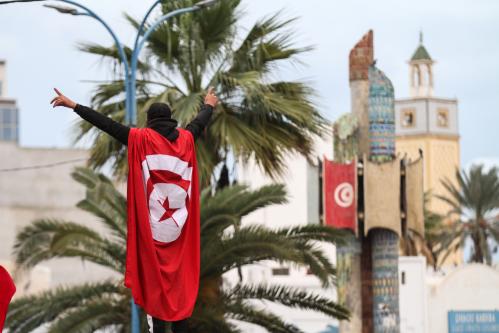
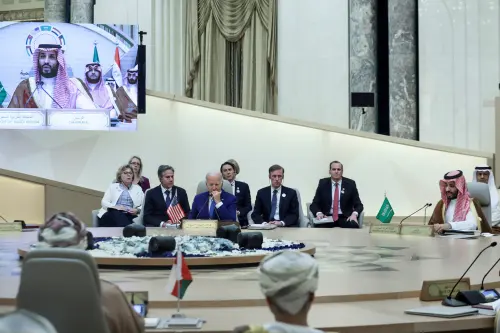
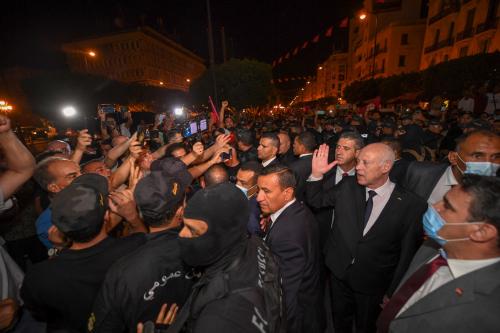
Commentary
Restoring Tunisia’s democracy requires pressure — and an off-ramp for Kais Saied
May 26, 2022